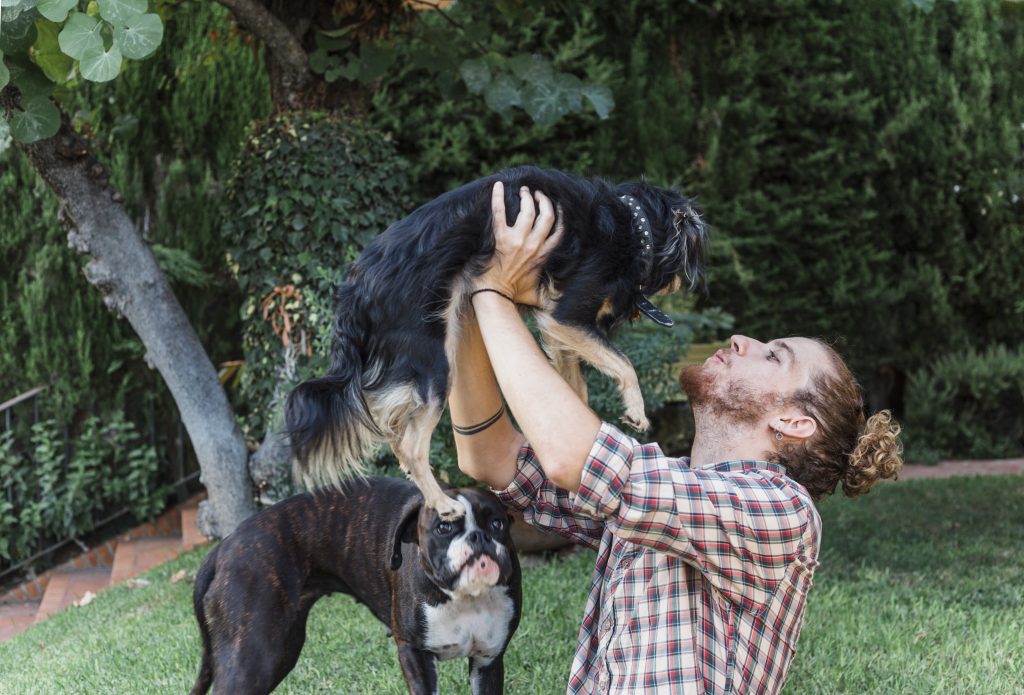Pit bulls are one of the most popular and misunderstood dog breeds in the world. Known for their loyalty, strength, and affectionate nature, these dogs often find themselves at the center of negative stereotypes. Among the most common myths is the belief that pit bulls become more aggressive as they age. In this article, we will debunk these myths and provide you with factual information about age and aggression in pit bulls. Whether you are a new pit bull owner or have had one for years, understanding the causes of aggression and how to manage it will help ensure your dog lives a long, happy, and well-adjusted life.
What is the Average Lifespan of a Pit Bull?
The lifespan of a pit bull typically ranges from 10 to 12 years, though some may live longer or shorter depending on various factors. Genetics, environment, diet, and overall care play crucial roles in determining a dog’s lifespan. While pit bulls are generally healthy dogs, they may experience certain health issues that can affect their longevity.
Pit bulls bred for fighting tend to have shorter lifespans, often due to physical abuse and poor living conditions. In contrast, pit bulls raised in loving homes, with proper medical care, balanced diets, and regular exercise, can live to the upper end of the lifespan range. As with all breeds, responsible ownership plays a huge role in determining how long your dog will live.
Do Pit Bulls Get Aggressive at Older Ages?
One of the most common misconceptions about pit bulls is that they become more aggressive as they age. While it’s true that some dogs become more aggressive over time, this is not a universal truth for pit bulls. Aggression can occur at any age, and many factors can influence this behavior.
Key Factors That Contribute to Aggression in Pit Bulls:
-
Genetics: Some pit bulls may be genetically predisposed to aggression, just as certain breeds might be predisposed to other traits, like herding or guarding. However, it’s important to remember that genetics alone do not dictate a dog’s behavior. Environmental influences and training play just as significant a role in shaping a dog’s temperament.
-
Lack of Socialization: Dogs that don’t receive proper socialization at an early age may become fearful or aggressive as they grow older. If a pit bull is not exposed to different environments, people, or other animals, it may develop anxiety and react aggressively out of fear. Socialization helps dogs learn to interact with their surroundings in a calm, controlled manner.
-
Poor Training: A lack of proper training can lead to frustration and miscommunication between dog and owner, which may result in aggressive behaviors. Training and consistency are vital to teaching a pit bull how to behave properly and safely. Without it, a dog may resort to aggression to assert dominance or express discomfort.
-
Health Issues: In some cases, aggression in older pit bulls may be linked to health problems such as pain, cognitive dysfunction, or illness. Dogs with arthritis or other chronic conditions may become irritable or snappy because they are in discomfort. Similarly, cognitive dysfunction syndrome (similar to dementia in humans) can cause confusion, irritability, and aggression in older dogs.
-
Environmental Stress: Pit bulls that experience stress or trauma—such as frequent moves, a change in routine, or living in an unsafe environment—may exhibit aggression. These dogs may react aggressively to new or unfamiliar situations because they feel threatened or insecure.
Do Pit Bulls Become Aggressive Earlier Than Other Dogs?
Many people believe that pit bulls become aggressive earlier than other breeds, but research on this topic is inconclusive. While some may experience aggression at an earlier age, this is not a trait that is exclusive to pit bulls. All dogs have the potential to display aggressive behavior, but this behavior is usually a response to their environment or upbringing.
Aggression in dogs can happen at any stage of life, whether they are puppies or seniors. Pit bulls may face more negative stereotypes, which sometimes leads to a perception that they are inherently aggressive. In reality, aggression can occur in any breed if not properly trained or socialized.
What Causes Aggression in Dogs of Any Age?
Aggression in dogs is a complex behavior with many potential causes. While some dogs may be born with a predisposition to aggression, most aggression arises from external factors, including environmental influences, socialization, and training.
Common Causes of Aggression in Dogs:
-
Dominance: Dogs often display aggression when they feel the need to assert dominance over other animals or humans. This typically happens when a dog is unsure of their place in the household hierarchy. Proper training can help address dominance-related aggression by establishing clear boundaries and expectations.
-
Fear and Anxiety: Dogs that feel fearful or anxious may respond aggressively to perceived threats. Dogs that are not exposed to various stimuli or experiences may react aggressively when faced with unfamiliar situations, people, or animals.
-
Pain or Discomfort: If a dog is in pain, it may react aggressively as a way to protect itself. Older dogs suffering from joint pain, arthritis, or injuries may snap or become irritable because of discomfort. Veterinary care is essential to address any health issues that may be causing aggression.
-
Resource Guarding: Dogs may act aggressively when they feel the need to protect their resources, such as food, toys, or their owner’s attention. Resource guarding can be mitigated through training and desensitization exercises.
-
Lack of Socialization: Dogs that aren’t socialized properly during their early development stages are more likely to develop fear-based aggression later in life. Early exposure to other dogs, people, and environments helps a dog learn appropriate behavior and reduce anxiety-driven aggression.
-
Changes in Routine or Environment: Dogs are creatures of habit, and changes to their environment or routine can cause stress, leading to aggression. Pit bulls that experience frequent moves or changes in their living situation may exhibit aggression as they try to cope with the stress.
How to Prevent Aggression in Pit Bulls
Preventing aggression in pit bulls—or any breed—begins with responsible ownership. Proper training, socialization, and a stable environment can help prevent most aggressive behaviors. Here are several ways to help your pit bull stay calm and well-behaved:
1. Early Socialization
Exposing your pit bull to various environments, people, and other dogs during their puppy years is critical. The more your dog experiences different situations, the better equipped they will be to handle new encounters as they grow older. Socialization also helps build confidence, which can reduce anxiety-driven aggression.
2. Consistent Training
Training your dog is one of the most important aspects of responsible pet ownership. Pit bulls that undergo consistent training are less likely to display aggressive behavior. Positive reinforcement techniques work best, rewarding good behavior while teaching your dog proper commands and manners.
3. Avoid Negative Experiences
Preventing negative experiences that could lead to fear or stress is crucial. Pit bulls exposed to abuse or neglect are more likely to develop aggressive behaviors. Ensure your dog is in a safe, loving environment where they feel secure and confident.
4. Veterinary Care
Regular vet visits are essential to catch any health issues early, such as arthritis or cognitive dysfunction, that may contribute to aggression. If you notice any changes in your dog’s behavior, such as increased aggression or irritability, take them to the vet for a checkup.
5. Provide Mental Stimulation
Pit bulls age and aggression are intelligent dogs that thrive on mental stimulation. Engaging your dog with puzzle toys, training sessions, and new challenges can help keep them mentally sharp and prevent frustration or boredom, which can sometimes lead to aggression.
Conclusion
Pit bulls, like all dogs, age and aggression can experience aggression, but this behavior is not inherent to the breed. Aggression can develop for many reasons, including genetics, environment, and lack of training. While some pit bulls may become more aggressive as they age, this is not true for all of them. Proper training, socialization, and a stable home environment can reduce the risk of aggression and help pit bulls remain loving and well-behaved companions throughout their lives.
If you notice signs of aggression, it’s essential to address the behavior early. With the right care and training, your pit bull can grow up to be a calm, confident, and well-adjusted member of your family.

